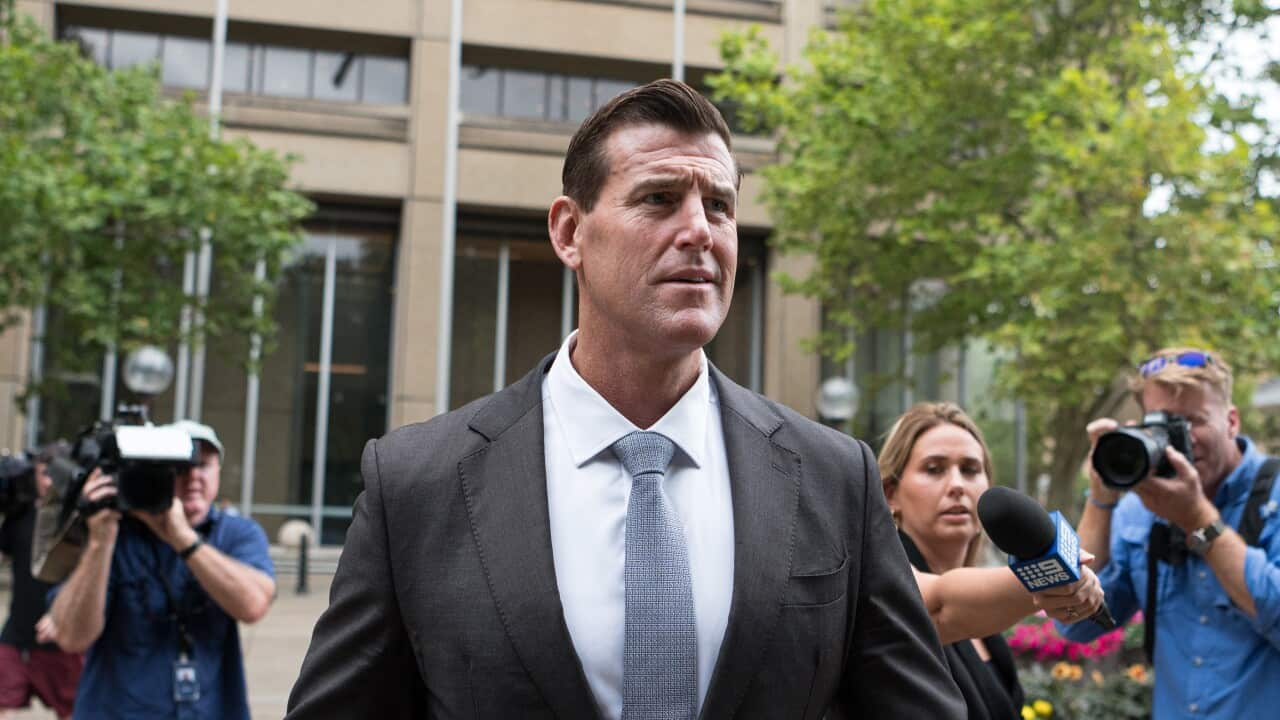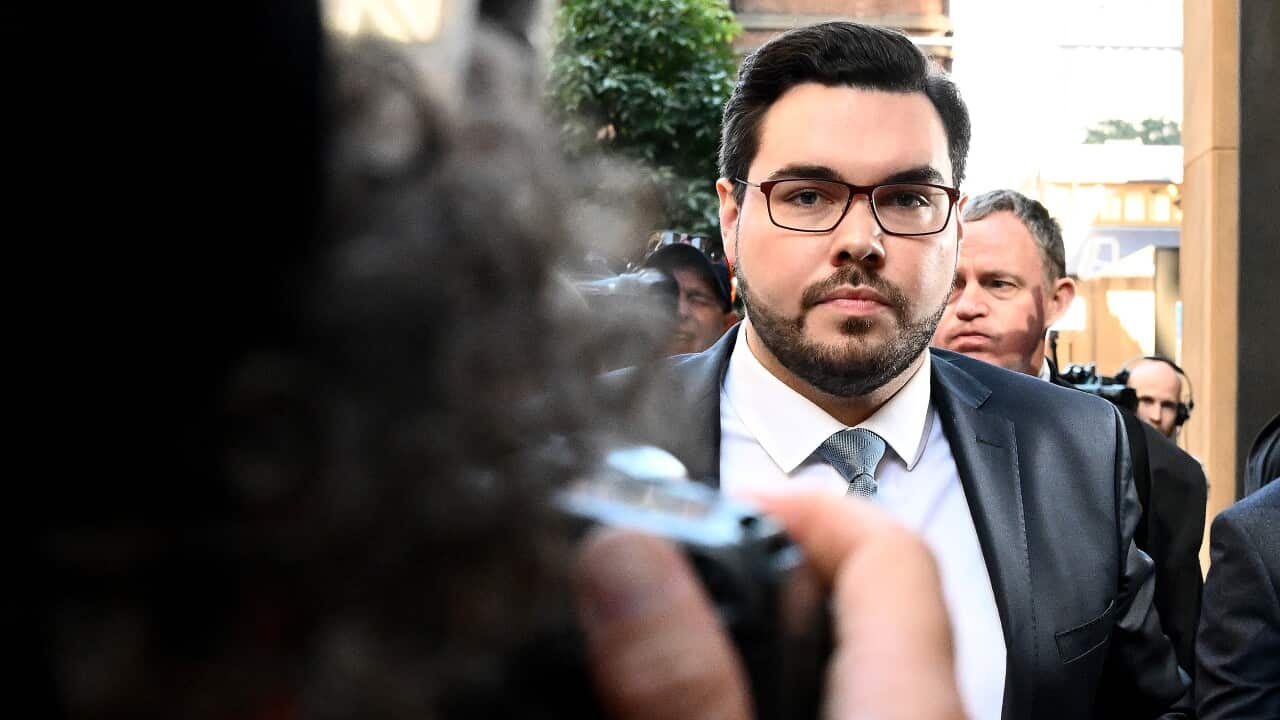Watch, read or listen to any media coverage of court proceedings and the terms allege, alleged and alleging will be scattered throughout.
It's heavy presence has gained criticism, questioning about whether media are being fair and balanced when it's used. But, the term has a crucial role in court reporting. It respects the judicial system, it avoids casting judgement of those involved in cases or swaying a jury, it protects journalists, media, sources and the public.
The media's right to report in a courtroom is a fundamental part of democracy. Here's how the use of 'alleged' in news respects that right.
What does 'alleged' mean?
Allege, alleged or alleging is often used by media to "indicate that someone is suspected of engaging in particular conduct", according to Director of the Centre for Media and Communications Law at Melbourne Law School Associate Professor Jason Bosland.
But it isn't limited to criminal behaviour or misconduct.
"It's often used when someone is charged . . . and it's used to indicated that they're suspected," he told SBS Examines.
"It might even indicate there are reasonable grounds to suspect the person has done a particular act but that he hasn't been confirmed, or been found guilty."
Media is cautious to imply or state as a fact a person has perpetrated a particular behaviour. There can be serious criminal and financial consequences for journalists and media organisations who do so.
"Two areas at play when publishing material about people who may have engaged in misconduct or criminal activity are defamation and contempt of court," explained A/Prof Bosland.
Contempt of Court
"[Contempt of court] is about protecting a person's right to a fair trial and not prejudicing the trial," A/Prof Bosland said.
"It's up to the judge or the jury to determine the guilt or innocence.
"If the media are publishing that someone has committed an offence when they haven't been tried for that offence might actually interfere with the reasoning process of the jury."
In the , contempt of court can include contacting jurors and interfering with witnesses or court officers.
Those who are in contempt may be referred to the Department of Public Prosecutions or to the court's prothonotary, a judicial officer who may act as the .
"They would then face what is essentially a criminal trial for a criminal offence and could have criminal sanctions imposed for publishing that," explained A/Prof Bosland.
Sanctions on journalists can include fines or imprisonment.
Defamation
Defamation is the act of "publishing something which would lower someone in the estimation of others" according to A/Prof Bosland.
"When someone is charged, you'd be able to publish they're alleged to have committed fraud or the police allege that they've committed fraud and they're about to face committal proceedings," he explained.
"For example, saying someone has committed a fraud and publishing it that way would satisfy what is known as the cause of action in defamation."
He says using 'alleged' in this instance would provide the journalist the defence of truth. The defence of truth is one of many defences against a claim of defamation, including honest opinion, public interest, and triviality.
The defence of truth can also be used when reporting on early proceedings.
He says the defence of truth operates in "favour of the media".
"The reason why you would use 'alleged to have committed the fraud' as opposed to saying someone has done these things and are therefore guilty of fraud is to ensure you have the defence of truth," he explained.
The Defence of Truth can also protect journalists who have published investigative reporting, prior to charges or conviction.
"If you're an investigative reporter, you have got all this evidence that points to someone having committed fraud and you want to publish that as a media expose . . . what you do is you publish all of that evidence and everything you've collected alongside the allegation that someone is 'alleged to have committed fraud," A/Prof Bosland said.

Media personnel are seen as Lisa Wilkinson speaks to the media outside the Federal Court of Australia in Sydney after winning the defamation lawsuit brought against Network 10. Credit: Bianca De Marchi/AAP Image
A/Prof Bosland said while it's a "subtle distinction, it's an important one" because it could provide a journalist the defence of public interest.
If the distinction isn't made, it could expose the reporter to liability, if accused of defamation, on the basis of not engaging in "responsible journalism".
'You've made an allegation that someone has in fact committed fraud. But your evidence might not actually rationally lead to that conclusion," he explained.
"It might be enough to point in that direction so if that's all you're saying, it's more likely you'll be seen to be a responsible journalist and have the responsible journalism defence available to you."
While some may accuse journalists of not providing fair and unbiased reporting in court proceedings, there are legal and ethical responsibilities that members of the media must follow to limit the risk of legal consequences.
Using 'alleged' in reporting does not mean a journalist is in favour of the defendant or plaintiff but rather are respecting the criminal process and protecting not only themselves and their news outlet but their sources and all those involved in the story.
While journalists who are found to be in contempt of court may have criminal sanctions imposed on them. Those that are found to have defamed are personally liable, as is the media organisation that published the content. Both parties may be responsible for paying damages to the person/institution they defamed.
There are also instances of aggrevated damages.
"They're damages rewarded to the plantiff where the defendant, in this case a journalist, has engaged in conduct which has exacerbated the harm that has been caused to the person," said A/Prof Bosland.
The democractic importance of court reporting
While there's a lot of red tape for journalists who pursue court reporting, A/Prof Bosland stands firm that both the media and the court have built an honest system that respects each other.
"You can publish anything you like when it comes to reporting a court case, anything that has been revealed in court in most instances, there are some exceptions to that. But if you're providing a fair and accurate report of what is alleged to have happened . . . .then that is ok," he said.
"Law seeks to balance it by asking not so much about whether you've used the term alleged in that context but by whether or not you have provided a fair and accurate report of what is happening in the room."
He says fair and accurate reporting of the court is a crucial piece in building a nation's trust not only in the courts but democracy as a whole.
"It's not just for the benefit of the media, it's for the benefit of the courts too. The courts have a real interest in making sure that the media are able to report on what is happening in court because it gives the process legitimacy," he said.
"The media's ability to report the courts is fundamental because it engenders a certain confidence that the public has in the legal system. Things aren't happening behind closed doors and the media are free to report it.
"It's important to bear in mind that these rules around what can be reported and what can't be . . . they should be directed at facilitating confidence in the judicial system."







